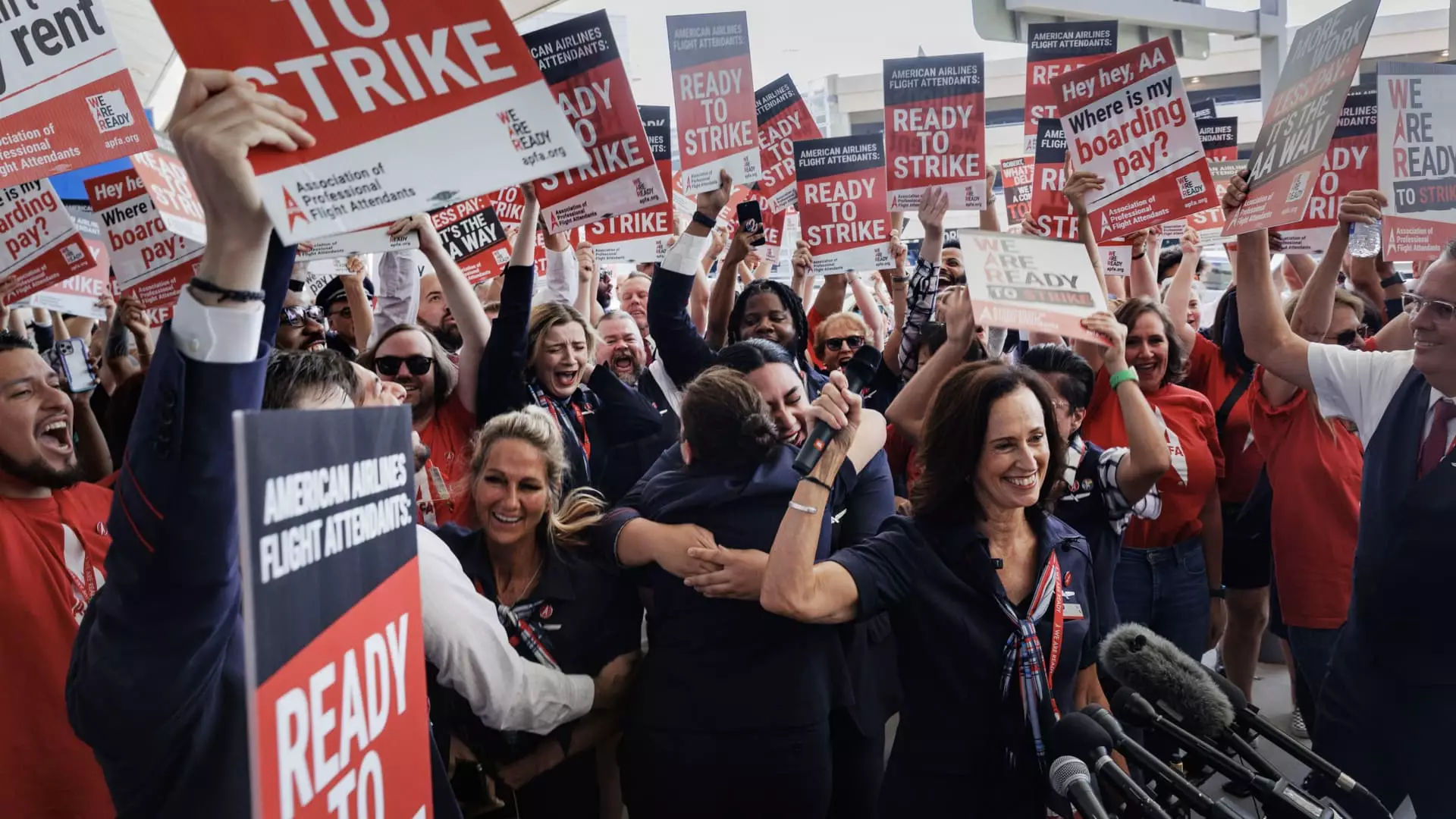In a significant turn of events within the airline industry, American Airlines flight attendants have ratified a five-year labor agreement that aims to resolve one of the most contentious contract negotiations in recent memory. With approximately 87% of voting flight attendants in favor, this contract offers immediate wage increases of up to 20.5% starting in October. The decision brings an end to a prolonged period of negotiation for roughly 28,000 American Airlines cabin crew members, represented by the Association of Professional Flight Attendants (APFA). The approval marks not only a triumph for the flight attendants but is also seen as a critical win as they tackle the challenges posed by skyrocketing living costs post-Covid-19.
Direct Impact and Immediate Benefits
The effects of this contract will be felt immediately, with substantial salary increases and retroactive payments that recognize the time invested in protracted bargaining. Julie Hedrick, the president of the APFA, emphasized that the contract signifies a significant milestone for flight attendants, framing it as an essential acknowledgment of their contributions and sacrifices. The agreement provides a much-needed cushion amid economic challenges that have left many airline employees struggling to balance their finances. With labor negotiations gaining public interest and support, the success of this contract could be a catalyst for other sectors facing similar challenges.
American Airlines executives, including CEO Robert Isom, expressed relief over reaching this agreement, particularly given the looming threat of strike actions from their flight attendants. The past months have seen significant involvement from federal authorities—Transportation Secretary Pete Buttigieg and Labor Secretary Julie Su were notably present during negotiations overseen by the National Mediation Board (NMB). This level of engagement not only underscores the gravity of the situation but also highlights a growing trend where governmental oversight in labor disputes is becoming a standard practice.
As American Airlines concludes negotiations, other airlines continue to navigate their own labor challenges. United Airlines is still in discussions with its flight attendants, while cabin crew members at Alaska Airlines recently voted down a tentative agreement. This pattern is reflective of a labor movement gaining momentum across various industries, with recent strikes and negotiated settlements securing better pay for workers. The sentiment for better compensation, catalyzed by the impact of the pandemic, is building across multiple sectors, including automotive and entertainment industries.
The trend of ongoing negotiations emphasizes a shifting landscape for labor relations in the U.S. airline industry and beyond. With 33,000 Boeing employees voting on a new contract that includes substantial raises, the implications of those decisions could also reverberate through the industry. The possibility of strikes looms, creating a precarious situation if agreements aren’t reached. Ultimately, the successful ratification of the American Airlines flight attendants’ labor deal may set a crucial precedent, inspiring collective bargaining efforts among other airline and industry workers seeking fair treatment and improved working conditions.

